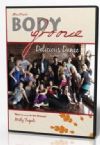|
One day you hear that a certain food, supplement, or diet is good for you, the next day you hear the opposite. According to survey results shared by the Academy of Nutrition and Dietetics (formerly the American Dietetic Association), one in five people reported being confused by news reports that give dietary advice. Can you blame them? Most people don't have access to the professional journals that publish these studies, so the average person relies on secondary sources (newspapers, magazines, websites, blogs and other media outlets) that interpret, condense and report on the studies in a more consumer-friendly way. Trouble is, research is hard to interpret. Ten people could look at one study and come away with 10 different takeaways. And even the best reporters and bloggers can get it wrong, especially under tight deadlines or pressure to write an eye-catching story that will sell papers or garner more views. Mundane news becomes sensationalized to get viewers and readers. Results are often spun to feed the writer's or organization's own interests. And vital details like who funded the research (conflict of interest), how it was designed, or how well controlled it (or not) was often go unmentioned. But it's important that we all become better consumers of health information—and read any news story with a discerning eye. Because what you read—and believe—based on these reports affects your behaviors, which in turn affect your health. So the Food and Nutrition Science Alliance (FANSA), a partnership of the ADA, American Society for Clinical Nutrition, and the American Society for Nutritional Sciences and the Institute of Food Technologists, developed the Ten Red Flags of Junk Science to help people recognize nutrition misinformation. Remember these points next time you read the latest news on weight loss or nutrition. The 10 Red Flags of Junk Science, sourced from FANSA:
These days I bring a healthy dose of skepticism with me when I read about any health study—especially when it comes to nutrition or weight loss, and especially if it's trying to promote any kind of product. Nutrition, diet-related and supplement-related studies are by far the hardest to really conduct because you can't really control what people eat or do, and most involve self-reporting, which is known to be full of error and mistakes. In addition to remembering these red flags, here are a few I'd add:
More Tips for Consumers 12 Ways to Spot a Fad Diet How to Get Ripped Off—Guaranteed! 10 Signs a Fitness Gadget is a Gimmick Do you think these red flags ring true? What are your trusted sources for health information? |
More From SparkPeople
|

.jpg)



.png)

/59690edf-d8e5-4684-882e-c2199743c199.jpg)







